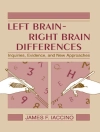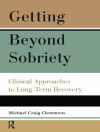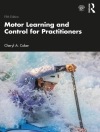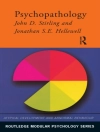While knowledge on substance abuse and addictions is expanding rapidly, clinical practice still lags behind. This book brings together leading experts to describe what treatment and prevention would look like if it were based on the best science available. The volume incorporates developmental, neurobiological, genetic, behavioral, and social–environmental perspectives. Tightly edited chapters summarize current thinking on the nature and causes of alcohol and other drug problems; discuss what works at the individual, family, and societal levels; and offer robust principles for developing more effective treatments and services.
Inhaltsverzeichnis
I. Introduction
1. Defining and Addressing the Problem,
Kathleen M. Carroll and
William R. Miller
2. The Forest and the Trees: Addiction as a Complex Self-Organizing System,
Warren K. Bickel and
Marc N. Potenza
II. Biological Factors
3. The Neurobiology of Addiction: A Hedonic Calvinist View,
George F. Koob
4. What Can Human Brain Imaging Tell Us about Vulnerability to Addiction and to Relapse?,
Anna Rose Childress
5. Genetics of Substance Use Disorders,
Deborah Hasin, Mark Hatzenbuehler, and
Rachel Waxman
III. Psychological Factors
6. Natural Change and the Troublesome Use of Substances: A Life-Course Perspective,
Carlo C. Di Clemente
7. Developmental Perspectives on the Risk for Developing Substance Abuse Problems,
Victor M. Hesselbrock and
Michie N. Hesselbrock
8. Comorbid Substance Use Disorders and Psychiatric Disorders,
Kim T. Mueser, Robert E. Drake, Win Turner, and
Mark Mc Govern
9. Motivational Factors in Addictive Behaviors,
William R. Miller
IV. Social Factors
10. Racial and Gender Differences in Substance Abuse: What Should Communities Do about Them?,
Harold D. Holder
11. Family and Other Close Relationships,
Barbara S. Mc Crady
12. Social Contexts and Substance Use,
Rudolf H. Moos
13. Ethnography and Applied Substance Misuse Research: Anthropological and Cross-Cultural Factors,
Robert G. Carlson
V. Interventions
14. Behavioral Therapies: The Glass Would Be Half Full If Only We Had a Glass,
Kathleen M. Carroll and
Bruce J. Rounsaville
15. Pharmacotherapy of Addictive Disorders,
Stephanie S. O’Malley and
Thomas R. Kosten
16. Religion, Spirituality, and the Troublesome Use of Substances,
Keith Humphreys and
Elizabeth Gifford
17. What We Need Is a System: Creating a Responsive and Effective Substance Abuse Treatment System,
A. Thomas Mc Lellan
18. Drawing the Science Together: Ten Principles, Ten Recommendations,
William R. Miller and
Kathleen M. Carroll
Über den Autor
William R. Miller, Ph D, is Emeritus Distinguished Professor of Psychology and Psychiatry at the University of New Mexico. He introduced motivational interviewing in a 1983 article and in the first edition of
Motivational Interviewing (1991), coauthored with Stephen Rollnick. Dr. Miller’s research has focused particularly on the treatment and prevention of addictions and more broadly on the psychology of change. He is a recipient of two career achievement awards from the American Psychological Association, the international Jellinek Memorial Award, and an Innovators Award from the Robert Wood Johnson Foundation, among many other honors. His publications include 65 books and over 400 articles and chapters. His website is
https://williamrmiller.net.
Kathleen M. Carroll, Ph D, until her death in 2020, was Albert E. Kent Professor of Psychiatry, Yale School of Medicine, and Director of Psychosocial Research in the Division on Addictions. A leader in the field of addiction treatment research, she authored or coauthored over 330 articles in peer-reviewed publications, over 50 chapters in major textbooks, and several books and published manuals. Dr. Carroll was a past president of Division 50 (Addictions) of the American Psychological Association, and received both Senior Scientist and MERIT awards from the National Institute on Drug Abuse, the latter being awarded to the top 1% of National Institute of Health investigators.
,












